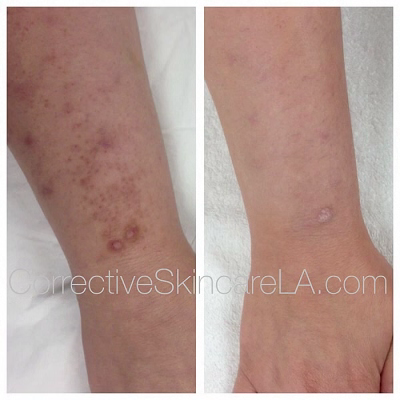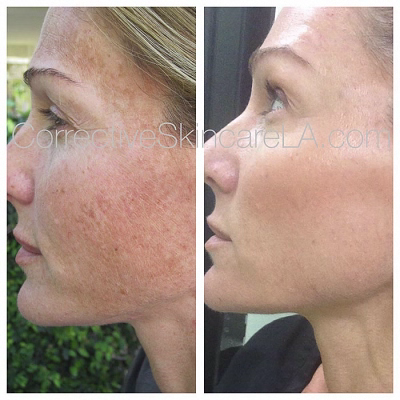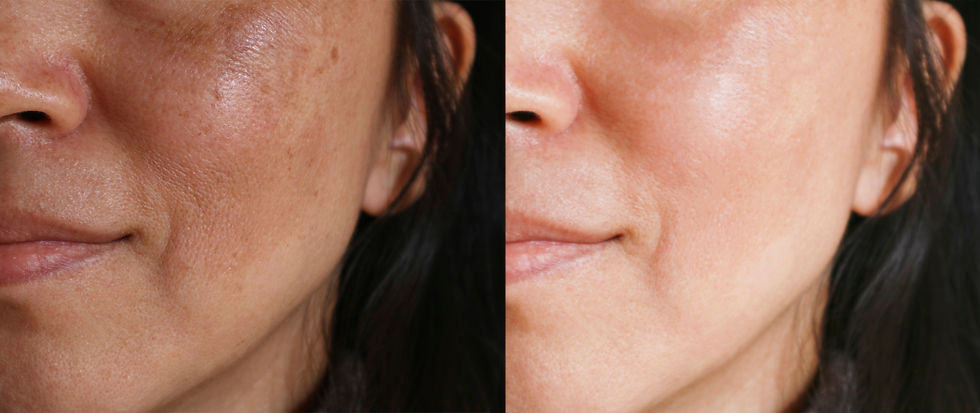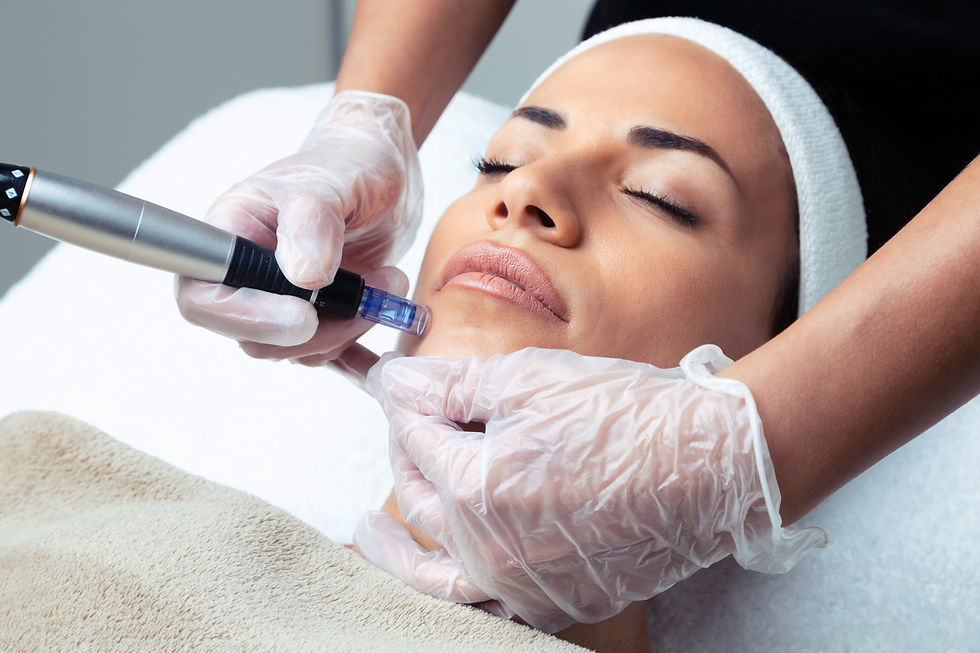The Different Types of Skin Discoloration
- Apr 22, 2020
- 2 min read
Regardless of the type of discoloration you have, all types of hyperpigmentation come from an uneven increase in melanin. This results in some parts of the skin appearing darker than others.
Discoloration is one of the hardest things to treat (especially if you live in Southern California!) but it can be done using the correct type of acid, lightning/brightening agents, and consistent use of sunscreen based on your goals and type of skin.
1: Melasma
Melasma tends to be larger and more "patchy" in appearance. It is more commonly associated with hormones and is often called "the mask of pregnancy”.
Melasma is very reactive to UV rays and heat, making it difficult to treat.
2. Post Inflammatory Hyperpigmentation
This type of discoloration is mostly associated with acne or inflammation.
All skin types are affected but darker skin tends to show more because it has more melanocytes (cause of pigment). Once the breakout or irritation goes away, it will leave a residual pink or brown colored mark.
The best course of action is to prevent the underlying cause of the breakout and avoid picking, scratching, or irritating the skin.
3. Age and sunspots
This can happen anywhere on the body but you'll see it most often on the face, chest, and hands.
Sunspots are caused by the UV rays and genetics.
4. Freckles
A true freckle has perfect symmetry and appears, for the most part, before puberty and then fades as we age.
Additional sun exposure can darken freckles. A dark spot that has inconsistencies or isn’t perfectly round is sometimes what is called a sun lentigo and is considered sun damage a.k.a. sunspot.
*Skin discoloration with abnormalities, shape inconsistencies, has difficulty healing, or is changing— may need to be consulted by a board-certified dermatologist.
How to Treat Skin Discoloration
There is no universal skin type or lifestyle so all variables would need to be considered to treat and even the skin tone. The remedy is based on complexion, genetics, home care habits, diet, use of SPF, etc..
If you would like help treating YOUR type of discoloration, reach out to us! We can help by formulating an effective facial treatment plan and customized at-home skincare routine.
Contact Corrective Skincare LA today for a virtual or in-clinic consultation!
%20(1).png)









Comments